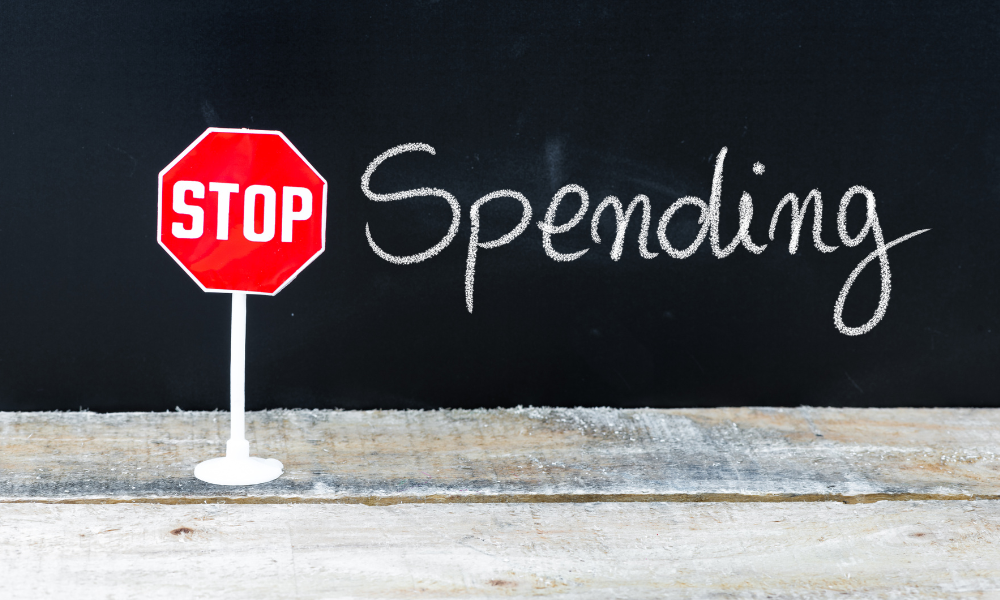We live in a consumer-driven society. We are told to buy, buy, buy. It’s easy to find ourselves spending money on things that we don’t truly need or that don’t bring us lasting satisfaction. From daily coffee runs and unnecessary premium gasoline to excessive cell phone data plans and unused gym memberships, these unnecessary expenses can quickly add up and negatively impact our financial well-being. This article will highlight 15 things that you can stop spending money on right now, helping you save money and make wiser financial decisions.
Daily Coffee Runs
It’s easy (and delicious) to run by your local coffee shop and crap your morning brew but it’s expensive. Those seemingly small purchases can really add up. By eliminating daily coffee runs and opting to brew your java at home, you will save more moola than you think. Experiment with various flavors and brewing techniques. You will be surprised how good of a barista you can be! So stop spending money on daily coffee runs right now and watch your savings grow while savoring the convenience of a homemade cuppa joe.
Going Out To Eat
It’s no secret that going out to eat at restaurants or fast food joints can wreak havoc on your pocketbook. To improve your financial and physical health, it’s time to break the habit of frequent dining out. Preparing meals at home not only costs less but also promotes healthier eating and fosters valuable cooking skills. And once you start doing it, the habit becomes easier than you think.
Subscription Streaming
There are a lot of subscription streaming services out there, too many. Stop spending money right now by choosing just two of them. Pick the ones that you watch most. We promise you won’t miss the other ones all that much. Besides, fewer streaming platforms mean fewer choices, making it easier to decide what to watch.
Gym Memberships
Let’s be honest about that gym membership. How often are you really going? If the answer is every day, then keep paying for it. However, studies suggest that only about 18-25% of gym members use their memberships consistently. Consider alternative fitness options like home workouts, outdoor activities, or joining community classes.
Bottled Water
Stop buying bottled water. Switching to reusable water bottles is a trifecta of benefits. The average American is estimated to spend around $30 per month on bottled water. Those that utilize reusable bottles spend $0. Secondly, tap water typically contains more trace minerals and vitamins than purified bottled water making it healthier for you. And lastly, using reusable bottles significantly reduces plastic waste, helping to protect the environment and preserve natural resources for future generations. Giving up on bottled water is a sustainable choice for a less expensive, healthier, and greener lifestyle.
Lottery Tickets
The odds of winning the lottery are incredibly low, often in the range of 1 in hundreds of millions or even billions. Those funds could be better used for savings or investments. So stop buying lottery tickets and focus on improving your financial well-being. Taking control of your financial future is a far more promising and practical strategy than relying on luck for a windfall.
Your Phone’s Data Plan
Most expensive phone data plans give you a lot more data than you use. Especially if you have Wi-Fi already in your home. Take a look at your data usage from previous months and assess how much you are truly using. You can save a good amount of money by lowering your phone’s data plan right now.
Pre-packaged Convenience Foods
Ditching pre-packaged convenience foods is a wise choice for both your wallet and well-being. These items often come with a hefty price tag and are laden with preservatives, additives, and excessive packaging. Preparing meals from scratch empowers you to control ingredients, leading to healthier choices. Embrace homemade options and enjoy the benefits of saving money while nurturing your body with wholesome, nutritious meals.
Checkout Counter Products
There’s a good reason that checkout counters are packed full of random and last-minute products. They are meant to catch your eye and make you impulsively spend. These are most often products that are not essential needs. A good rule of thumb is: if it isn’t on your grocery list, then don’t buy it.
Premium Gasoline
For most standard vehicles that don’t require premium gasoline, using regular unleaded gas is sufficient and more cost-effective. If your vehicle doesn’t have a high-performance or turbo-charged engine or high compression ratios, then stop spending money on premium gasoline right now.
Organic Foods
While organic products offer some benefits, they often come at a higher price. And many times, an “organic” label doesn’t mean much at all. Organic farmers still use pesticides. Organic doesn’t mean the product is new or fresh, and it doesn’t guarantee more nutrients. Often, “organic” is just a marketing label. So while we aren’t going to tell you to stop buying organic foods altogether, we encourage you to look at the specific product harder. You can likely stop spending money on it right now.
Name-Brand Products
You can stop spending money on name-brand products right now and not lose any quality or comfort. In many cases, generic or store-brand alternatives offer comparable quality without the premium price. This includes everything from groceries and clothing to household cleaning supplies and medications. Shift your focus from labels to product ingredients and reviews to make informed choices. You will save a lot of money this way.
High-interest Credit Cards
Putting an end to high-interest credit card spending is crucial for financial well-being. The mounting interest charges can quickly snowball into overwhelming debt. Consider consolidating debts with lower interest rates or creating a budget to pay off high-interest cards faster. This step will reduce financial stress, save money on interest payments, and pave the way to achieving a debt-free, more secure future.
Disposable Household Items
On average, it is estimated that households may spend anywhere from $30 to $100 or more per month on disposable items such as paper towels, napkins, disposable plates, plastic cutlery, and other single-use products. By opting for reusable items like Tupperware containers, washable dishes, and washrags, you can keep a good amount of money.
Pet Grooming
We love it when our pets are groomed and clean, and we spend significant money on services for it. However, our pets would be even happier if we did it ourselves. Rather than budgeting for pet grooming, invest in some good clippers and shampoo and do it yourself. Your pet will thank you, and so will your pocketbook.
Being mindful of spending habits and prioritizing needs over wants can help save money and lead to more financially sound decisions. And it doesn’t have to be painful. You don’t have to stop buying coffee, for example, you simply have to change how you buy it. Just because you stop paying for a gym membership doesn’t mean you have to stop working out. Lifestyle changes like these can make a gigantic difference in the amount of money you spend. So stop throwing money at things you don’t need, and you will be well on your way to financial freedom and happiness.
.











